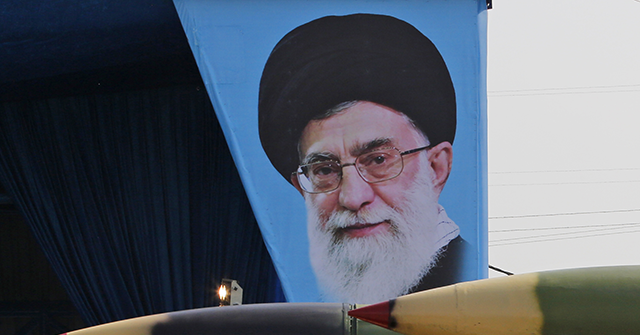The U.S. and Iran are nearing what is described as a verbal agreement on Iran’s nuclear program — one that Israeli Prime Minister Benjamin Netanyahu has reportedly told aides is one that Israel may be able to accept.
The deal, first reported in the New York Times, is supposedly a limited and “non-written” agreement brokered through the Gulf Arab state of Oman, after President Joe Biden tried for more than two years to reopen talks on a broader deal. The previous deal struck by the Obama-Biden administration in 2015 allowed Iran to become a nuclear power after about a decade, in return for sanctions relief and billions of dollars in unfrozen assets.
The new deal would supposedly limit Iran’s enrichment of uranium to a level just short of weapons-grade, in return for an agreement by the U.S. not to increase sanctions. The Times described the emerging agreement:
Iran would agree under a new pact — which two Israeli officials called “imminent” — not to enrich uranium beyond its current production level of 60 percent purity. That is close to but short of the 90 percent purity needed to fashion a nuclear weapon, a level that the United States has warned would force a severe response.
Iran would also halt lethal attacks on American contractors in Syria and Iraq by its proxies in the region, expand its cooperation with international nuclear inspectors, and refrain from selling ballistic missiles to Russia, Iranian officials said.
In return, Iran would expect the United States to avoid tightening sanctions already choking its economy; to not seize oil-bearing foreign tankers, as it most recently did in April; and to not seek new punitive resolutions at the United Nations or the International Atomic Energy Agency against Iran for its nuclear activity.
Israel, which is always cut out of these negotiations because Iran does not believe it has a right to exist, opposed the 2015 deal because it allowed Iran to become a nuclear power and because it did not address Iran’s broader support for terrorist proxies. Obama’s Iran deal was also opposed by Arab states throughout the region.
In 2018, President Donald Trump withdrew from the deal. Democrats and the media (including the Times) blame that withdrawal for Iran’s accelerated efforts to enrich uranium. But as Netanyahu demonstrated dramatically in 2018, Iran never had any intention of stopping its nuclear program. It used the two-plus years of Biden’s diplomatic efforts to buy time and continue enriching uranium and developing missile and drone technology.
The Times of Israel reported that Netanyahu is aware of the new “mini-deal” talks:
Netanyahu downplayed the US-Iran negotiations as closing in on a “mini-agreement, not an agreement,” the reports by Walla and Channel 13 said, citing several unnamed lawmakers who took part in the closed-door, three-hour meeting of the Knesset’s Foreign Affairs and Defense Committee.
“What’s on the agenda at the moment between Washington and Tehran is not a nuclear deal, it’s a mini-deal,” Netanyahu was reported to say. “We will be able to handle it.”
…
Participants at the meeting told Channel 13 that Netanyahu had indicated that Israel “could live with” the impending agreement.
Israeli opposition parties are already criticizing Netanyahu for allowing a new Iran deal to emerge, saying that he lacks the ability to influence the Biden administration. Biden has refused to meet with Netanyahu since he was elected last year, an extraordinary snub that was called “despicable” by former U.S. Ambassador to Israel David Friedman. However, U.S. Secretary of Defense Lloyd Austin met his counterpart in Israel this week.
Trump’s strategy had been to increase sanctions and pressure on Iran while encouraging internal democratic opposition to the regime, while holding out the prospect of a tougher, enforceable deal to end its nuclear efforts.
Joel B. Pollak is Senior Editor-at-Large at Breitbart News and the host of Breitbart News Sunday on Sirius XM Patriot on Sunday evenings from 7 p.m. to 10 p.m. ET (4 p.m. to 7 p.m. PT). He is the author of the new biography, Rhoda: ‘Comrade Kadalie, You Are Out of Order’. He is also the author of the recent e-book, Neither Free nor Fair: The 2020 U.S. Presidential Election. He is a winner of the 2018 Robert Novak Journalism Alumni Fellowship. Follow him on Twitter at @joelpollak.


